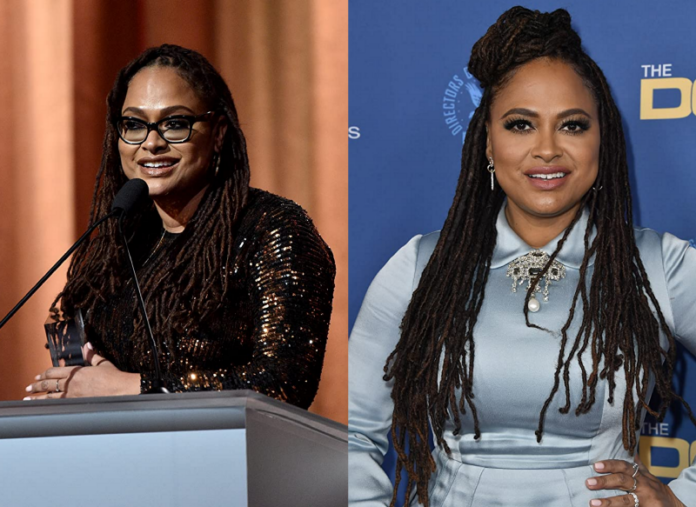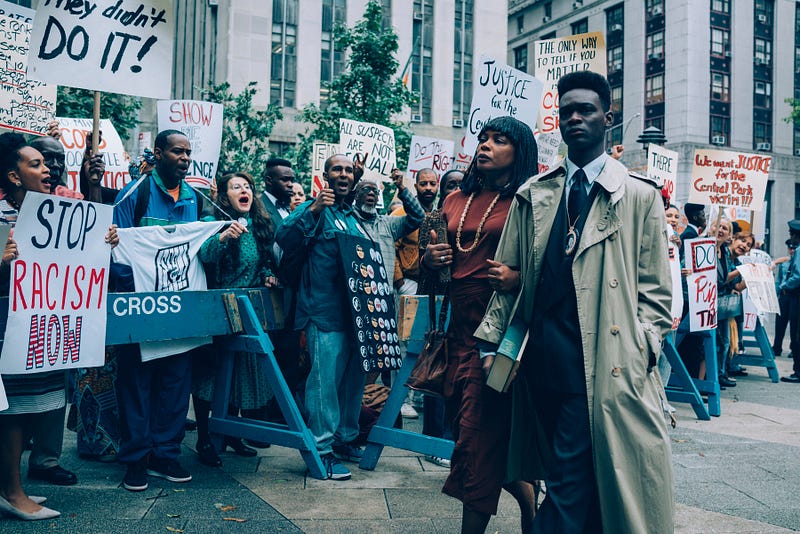
Filmmaker Ava DuVernay has done a great deal to highlight the fact that not only do #BlackLivesMatter but that it is vital for each and every one of us to understand African American history and culture.
She has the distinction of being the highest-grossing African American female film director, who is best known for her riveting films and television projects, including When They See Us, Selma, 13, The Red Line, and Queen Sugar.
And most recently, Cherish the Day, part of her award-winning work as a writer, director, producer, and film distributor has been focused on social justice and civil rights. Cherish the Day, on OWN: Oprah Winfrey Network, achieved full gender parity with a production crew of more than 50 percent women, including 18 female department heads. DuVernay is often called “a groundbreaking leader in the entertainment industry.”
The 47-year-old DuVernay is the first black woman to direct a film nominated for the best picture Oscar. She’s the first to win the best director at the Sundance Film Festival. The first to be nominated for Best Director of a Golden Globe Award and she’s also the winner of Emmy, BAFTA, and Peabody Awards.
She amplifies the work of people of color and women from all walks of life through her non-profit film collective ARRAYNOW named one of Fast Company’s Most Innovative Companies. She is on the advisory board of the Academy of Television Arts and Sciences and chairs the Prada Diversity Council.
In the wake of recent tragic and senseless deaths involving black men, that prompted peaceful protests and civil unrest — and a call for drastic and immediate change — it is the perfect time for Medium to explore how each one of us can look to DuVernay and other changemakers to inspire us to make impactful positive changes on our lives, our communities and beyond.
What people most love about DuVernay is that she’s not only a brilliant and accomplished storyteller, she is also fiercely, fully, and engagingly her own woman, and she is committed to helping women and people of color share their talents and strengths with the world, as well.
She is immensely proud that of Selma, her stunning 2014 film about the 1965 voting rights marches from Selma to Montgomery, Alabama.
Although the Civil Rights Act of 1964 legally desegregated the South, discrimination was still rampant, making it very difficult for blacks to register to vote. In 1965, an Alabama city became the battleground in the fight for suffrage.
Despite violent opposition, Dr. Martin Luther King Jr, (David Oyelowo), and his followers pressed forward on an epic march from Selma to Montgomery, and their efforts culminated in President Lyndon Johnson signing the Voting Rights Act of 1965.
Following Selma, her documentary 13 is about the inequities and injustices in the U.S. prison system.
DeVernay also made an indelible mark in her May 2019 Netflix series When They See Us, about the infamous case of five young black men who were charged with the assault and rape of a jogger in Central Park in 1989.
Each member of the group, labeled “The Central Park Five,” maintained his innocence and spent years fighting the convictions, hoping to be exonerated, which they eventually were. DuVernay co-wrote and directed the four episodes of When They See Us. That was followed by Queen Sugar, which is called “a racially progressive” TV show.
Here is an in-depth look at the life-changing work from Ava Duvernay as she told the 7,000 attendees of 2019 Pennsylvania Conference for Women, in a memorable sold-out presentation.
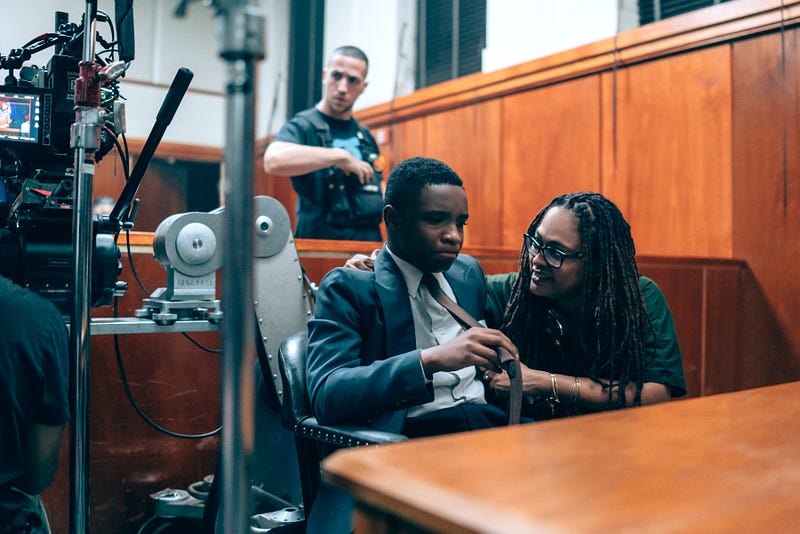
How often do you think about the fact that you are creating a new historic record?
There are different histories and some of them are pushed to the forefront and considered fact and the history of record, and then there are histories that have been purposely kind of depressed and hidden, but it doesn’t make them any less real. So, when we think of black history, when we think of women’s history, when we think of the history of oppressed peoples, I like to not prioritize history with a capital “H,” as if to say there’s only one and we have to kind of remake it, but what I feel that I’m doing is literally taking these other histories and centering and prioritizing them.
Our experiences can’t be taken away, because they are always deeply there. The battle is whether or are you are empowered enough to be able to center them, prioritize them, make them not be tangential to someone else’s history, but to prioritize your own. That’s the way I approach my work.
I’m going to share some secrets — and I would say this happens 90 percent of the time — when you’re walking by and you see another black person in an all-white space you’re going to do a little nod, a little acknowledgment of your presence that I found in so many situations which have made me stand up a little taller. It’s something that I really enjoy with other black women. We’re just trying to catch some eye contact. We really look at each other in the eye whenever we can.
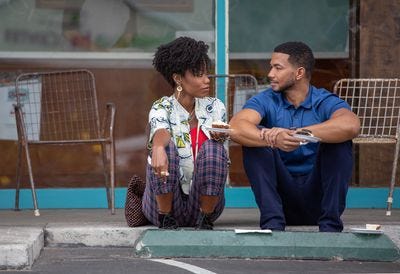
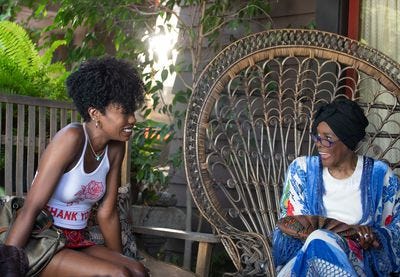
Many remarkable women, including Oprah Winfrey who you worked on several projects with, have called you fearless. Do you feel fearless?
The word fearless to me is a complicated word. I always think of it as Fear Less. Not like I have no fear. Just “fear Less.” It’s not the way I interpret the word. That every one of my experiences, my projects, my interactions, my just lived life on this earth helps me understand myself, this place, and my position a little bit more every day. So, that’s how I interpret and I embrace the word for myself.
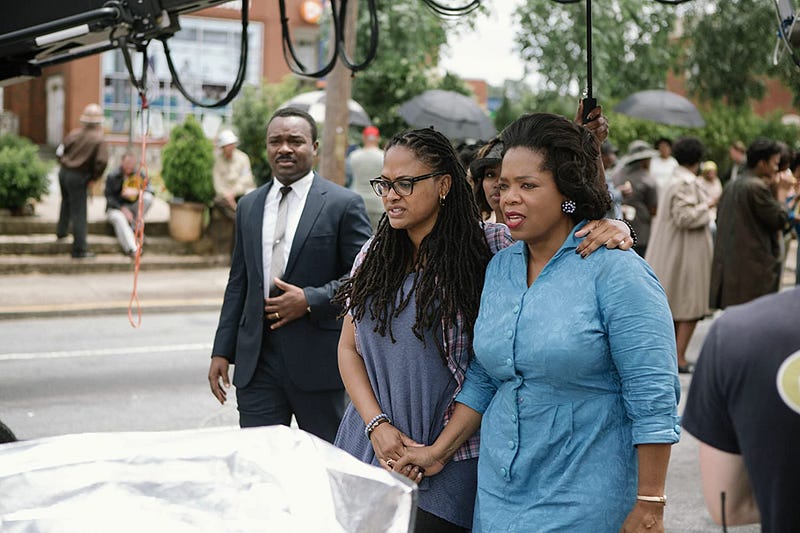
Please elaborate on this.
In my early days before I was able to kind of choose my own crew I would walk on the set filled with white men, who’ve been in their unions forever and I felt like they were thinking, “who’s this young black woman coming in trying to tell us what to do?” I could just literally be consumed by the fear of the moment, but I always try to ask myself what do I have to bring to the situation?
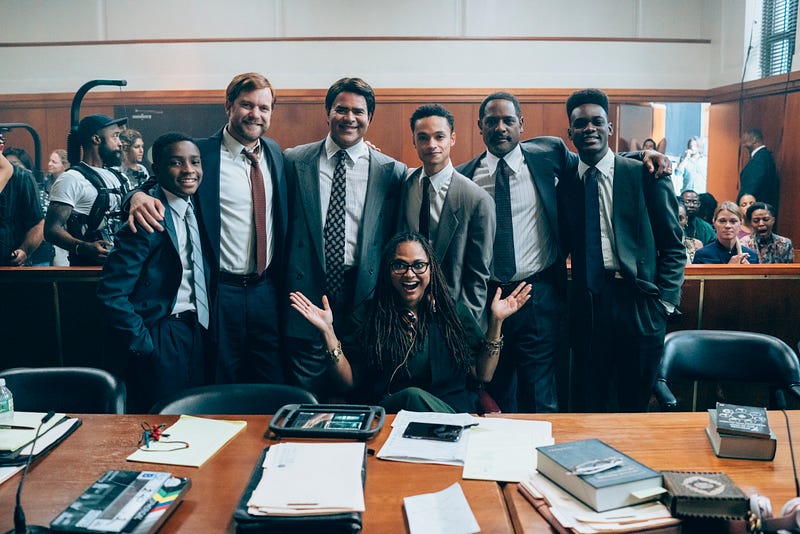
So, did you never experience imposter syndrome that is often associated with both men and women, but maybe highlighted more with high-achieving women?
Oh, yes, I am sure there are studies that say it’s more gendered. Obviously, men are raised in a privileged position within their households and within their communities. You know regardless of race or culture that the masculine is prioritized. So, it’s the question is it a real thing? I think it is. Is too much being made of it? I don’t think so.
How do we achieve some of that change to empower women?
I want us to stand in front of each other and those are part of the building blocks to getting away from this idea that we’re imposters and that we don’t belong. The way to do that is just to create a sense of belonging within us and among us, wherever we go. That’s why it’s important to hire each other, important to mentor each other, and important to talk to each other about all of these issues.
Please tell me more about this.
I’m going to share some secrets — and I would say this happens 90 percent of the time — when you’re walking by and you see another black person in an all-white space you’re going to do a little nod, a little acknowledgment of your presence that I found in so many situations which have made me stand up a little taller. It’s something that I really enjoy with other black women. We’re just trying to catch some eye contact. We really look at each other in the eye whenever we can.
These are the things that go towards helping us know that we’re not imposters, that we belong, and in that there’s really the differences that we have been made to believe exist between our work product, our ethic, and men are really just filled with myths and lies.
I have seen you described as the “Mom of 10” on social media, referring to your movies?
Yes, I do. I don’t have children by choice. I just never wanted them. I just know myself and from a very early age, people would tell me that I will change my mind when I got older, felt maternal, and met the right person. But I felt I would not be a great mother in the way that my mother was a great mother. My maternal grandmother was a great mother.
So, with that said when I started to make films I loved them so dearly and poured everything I have into the films it also is the thing that bears my name and will be here when I’m gone in the same way that a child carries on your legacy when you’re gone. Something that walks before you and says something about who you are, what you’ve done, what you’ve attempted to do with them.
Whether it’s worked out or not all of your hopes are there in this other person. For me, I put that into my work. So, yes, I feel like I’m the mother of my children. That’s when people say what’s your favorite movie, I’m like don’t you dare give me a Sophie’s Choice. I will not choose between my babies. So, yeah, I do feel very connected to the work.
I wanted to see a little black girl fly and save the universe. I’ve never, ever seen that in any movie. Those images alone are so valuable to me in terms of the mythmaking and storytelling that are the bedrocks of our culture. These stories that were told about ourselves make up the way that we behave, the way that we live, and the way that we vote. I feel that my contribution to this next generation could be a film that talks about morals, strength, ethics, and loyalty.
I often wonder when I am watching your things you are siting their day after day going back to the set to grapple with death and injustice often and some really serious things, gun violence. How do you not end up in a fetal position weeping? I mean how do you keep going back and keep going back?
You know, my weapon of choice is my voice and so I feel strong every day when I go to the set and I’m grappling with these big issues. I feel empowered. I feel like I get to be the teller. I’m the teller. I tell the story, right? That is my job. I’m the one who gets to decide what they wear, how they sit, how the camera’s moving, the music goes on it.
That is a joy and a blessing that gives me nothing but a feeling of euphoria and gratitude, and so, when I’m working on something that’s a tough subject matter, I know that it is mine to tell. That story has been told one way for a very long time, and now I get to tell it in my way, and that is something that I embrace and just really feel happy about every single day.
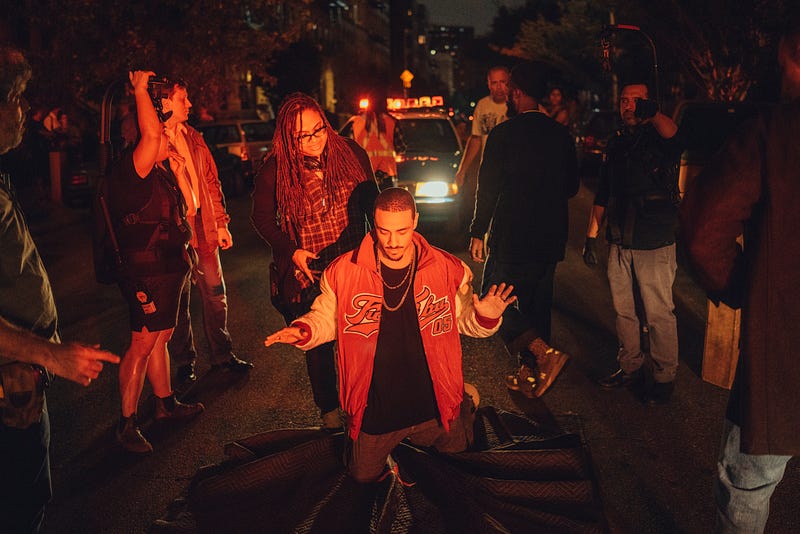
I always find it odd when people call you “an overnight success.” And I know you were doing a huge amount of work and laboring away way before Selma, but that’s when many people got to know your name. You followed this important body of work with Disney’s A Wrinkle in Time. How did this fit in with the weightier topics you have tackled?
Wrinkle of Time author Madeleine L’Engle’s work, which most of us read when we were children, was dealing with some really big issues about loss and grief and life and death, and her imagination led me to a place to really consider the film for a couple of reasons.
I wanted to see a little black girl fly and save the universe. I’ve never, ever seen that in any movie. Those images alone are so valuable to me in terms of the mythmaking and storytelling that are the bedrocks of our culture. These stories that were told about ourselves make up the way that we behave, the way that we live, and the way that we vote. I feel that my contribution to this next generation could be a film that talks about morals, strength, ethics, and loyalty.
How does this feed into the broader conversations we’re having about these difficult issues?
I’ve found the work to be a real entry point for conversation, debate, discussion, and also, really kind of instigating imagination around ways to move forward in a more positive manner. You know the work, being a storyteller that has things on-air, and things in films, has allowed me to meet people. I have a friend, Joanna, and I meet with her often to talk. As a white woman, her experience couldn’t be more different from me in terms of background and yet when we sit down and talk about the stories that we both tell, I discover that the narratives that we’re both trying to construct, there’s clearly a commonplace there.
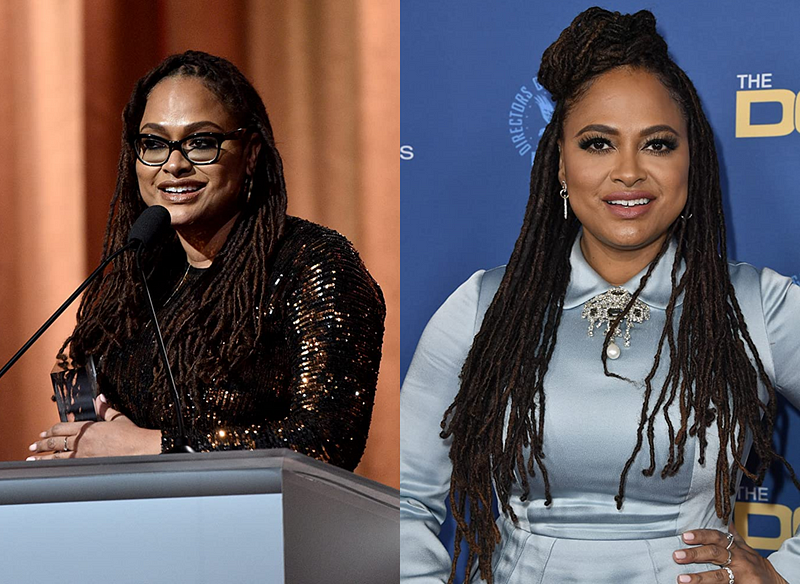
So, during your journey how do you keep going amid all of the difficulties of being a black woman, in a still primarily white male-dominated industry?
Well, you have to choose whether you’re going to use your power for good or not. Are you going to take that moment where you could be making huge money doing superhero movies and sexy thrillers, and all those things which are all things that I would love to make, but at the same time there’s something for me that says if I get my chance at the microphone I want to talk about issues that mean something to me.
Talk about the importance of women having mentors.
For me, that is fuel, fire, and food, and that is really what keeps me going, so I just invite people. Just start with one person. Just talk to her when you see her. Ask her about herself. See how there’s a way that we can help each other. Give each other that nod…and more.


